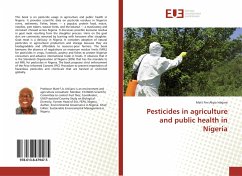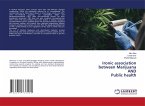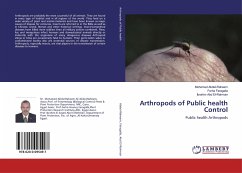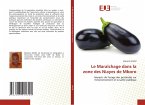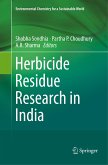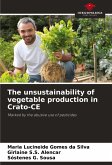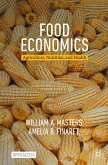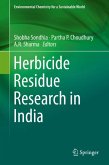This book is on pesticide usage in agriculture and public health in Nigeria. It provides scientific data on pesticide residues in Nigeria's rivers, sediments, fishes, beans - a popular, protein food, maize, noodles, yam tubers, weaver birds, and the kolanut - a masticatory and stimulant chewed across Nigeria. It discusses possible kerosene residue in goat meat resulting from the slaughter process. Hairs on the goat skin are commonly removed by burning with kerosene after slaughter. Goat meat is a delicacy in Nigeria. It considers adoption of natural pesticides in agricultural production and storage because they are biodegradable and affordable to resource-poor farmers. The book bemoans the absence of regulations on maximum residue limits (MRL) for pesticides in crops, livestock, poultry and fishes to protect Nigerian consumers and advance international trade in foods. It observes that it is the Standards Organisation of Nigeria (SON) that has the mandate to set MRL for pesticidesin Nigeria. The book proposes strict enforcement of the Prior Informed Consent (PIC) Procedure to prevent importation of hazardous pesticides and chemicals that are banned or restricted globally.
Bitte wählen Sie Ihr Anliegen aus.
Rechnungen
Retourenschein anfordern
Bestellstatus
Storno

